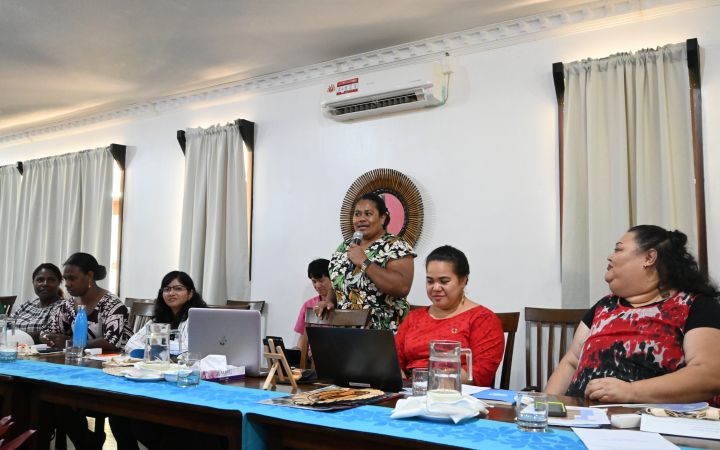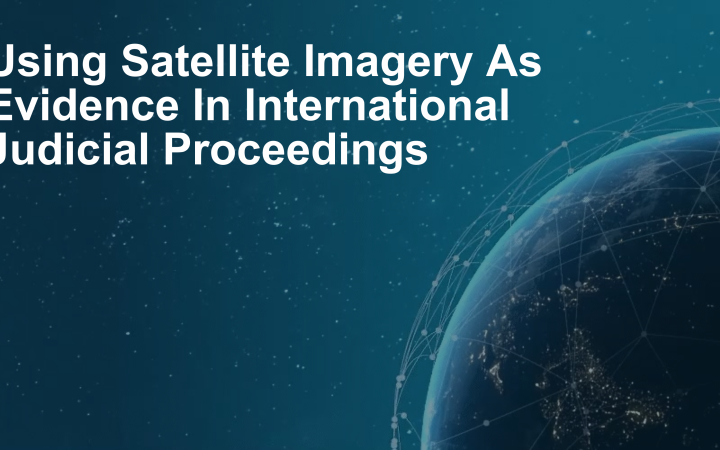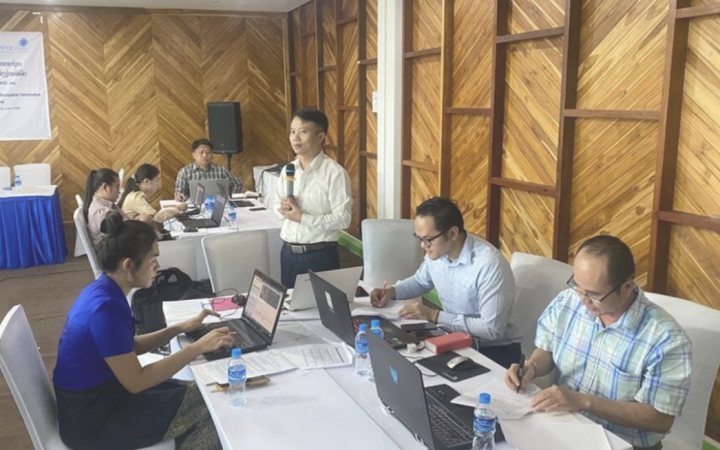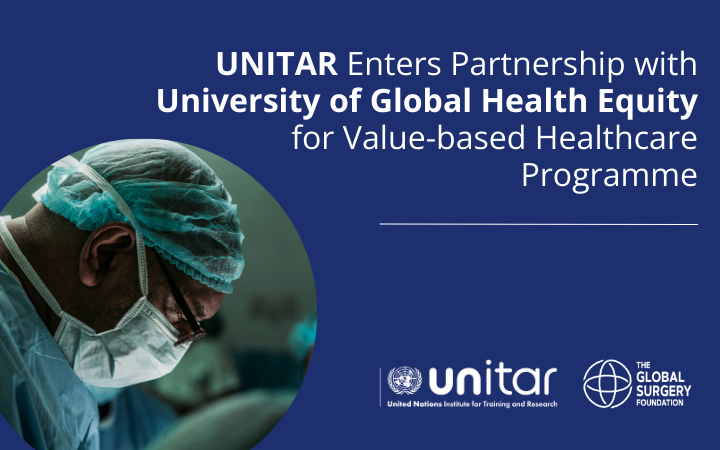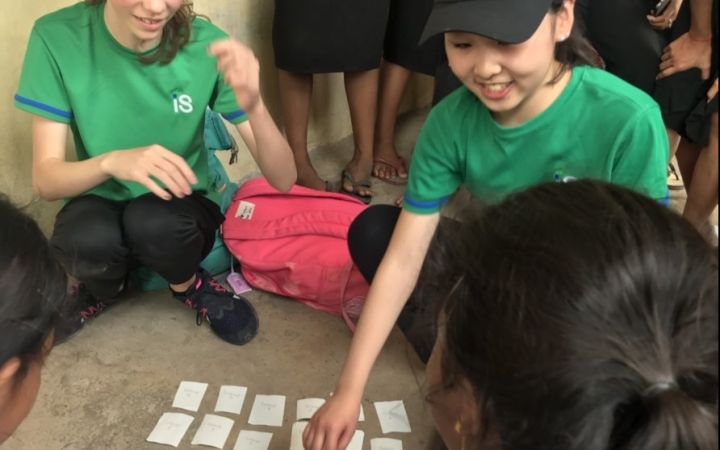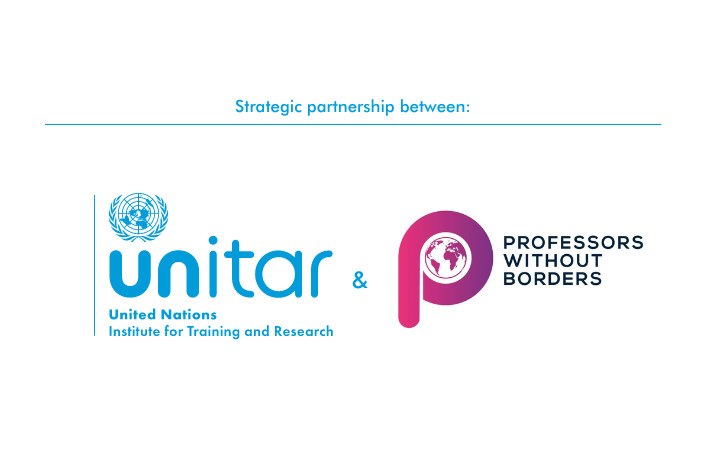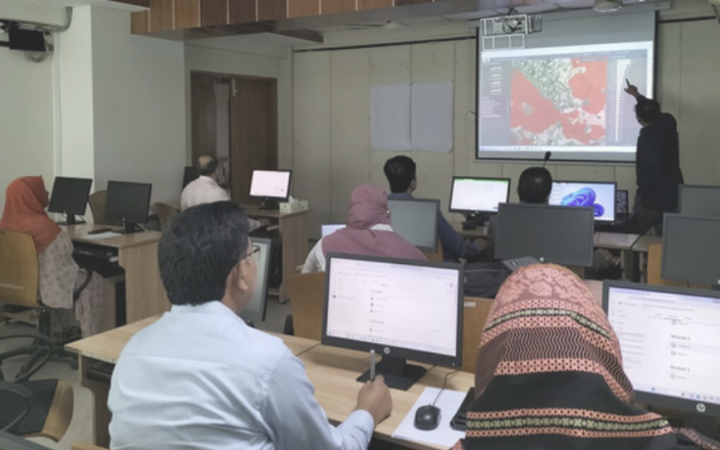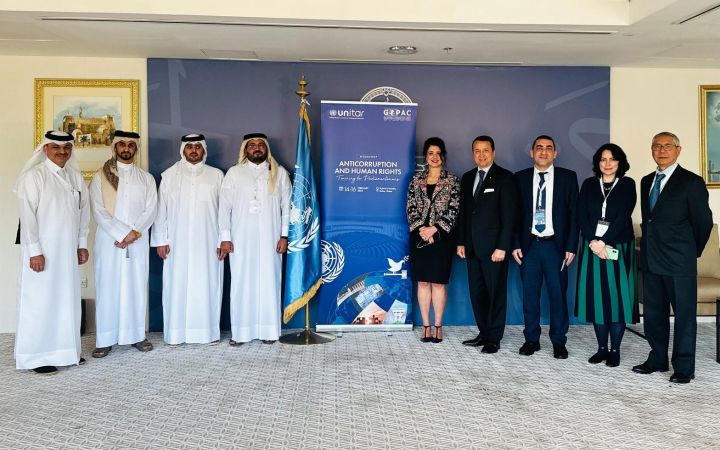Displaying 51 - 60 of 3018
4 March 2024
4 March 2024, Hiroshima, Japan – UNITAR Division for Prosperity will hold the final session of the “2023 Cycle Women’s Leadership in Tsunami-based Disaster Risk Reduction Training Programme for World Tsunami Awareness Day” from 5 to 11 March 2024 in Nuku’alofa, Tonga. Twenty exceptional learners have been selected from over 200 participants of the programme’s first phase to join the session in Tonga, where they will go on study tours and present what they learned.
28 February 2024
28 February 2024, Geneva, Switzerland - An innovative training course on using satellite imagery as evidence in international judicial proceedings has been launched by UNITAR-UNOSAT, the Asser Institute, the Geneva Science-Policy Interface (GSPI) and IUSTICOM. Legal professionals working with international justice organizations are the first beneficiaries of the course concerning technical and legal requirements of using satellite images as evidence in court.
27 February 2024
27 February 2024, Geneva, Switzerland - In 2023, UNOSAT faced challenges and achieved milestones. Our mapping team was activated for complex emergencies over 107 times in 60 countries worldwide and provided 634 products and services. Across the globe, our emergency mapping service has provided life-saving information to devastated areas affected by conflicts and disasters triggered by natural hazards.
27 February 2024
27 February 2024, Geneva, Switzerland ― UNITAR recently signed a new partnership agreement with the University of Global Health Equity (UGHE), a non-profit organization based in Rwanda, for a collaborative project on value-based healthcare (VBHC).
27 February 2024
27 February 2024, Hiroshima, Japan - Anna Takai is a young changemaker with a heart as expansive as her dreams. The 17-year-old student at MITA International School, Tokyo, is driven by a passion for education and a fervent desire to make a difference.
27 February 2024
22 February 2024, Hiroshima, Japan – Twenty-five women and youth from three sub-Saharan African countries will visit Japan for the third and final phase of the UNITAR training programme “Developing Green Livelihoods for Women and Youth in Africa: Strengthening Food Security, Supporting Climate Resilient Economies”. The participants will visit Tokyo and Hiroshima for an in-person workshop and study tour, from 26 February to March 2024.
26 February 2024
26 February 2024, London, United Kingdom – The United Nations Institute for Training and Research (UNITAR) and Professors Without Borders (Prowibo) have entered into a strategic partnership, marking a significant stride in enhancing global higher education and research. This alliance, focusing on academic development and research, underscores a shared dedication to quality education and impactful innovation.
Signed by Mr. Evariste Karambizi of UNITAR and Dr. Caroline Varin of Prowibo, the Memorandum of Understanding (MoU) establishes a framework for research collaboration and educational resource sharing. Central to this partnership is the emphasis on Sustainable Development Goals (SDGs), especially SDG 4, SDG 16, and SDG 17, reflecting both organizations' aligned objectives. Key initiatives include joint research projects and the dissemination of findings through Prowibo’s academic journal, Higher Education Compass.
Signed by Mr. Evariste Karambizi of UNITAR and Dr. Caroline Varin of Prowibo, the Memorandum of Understanding (MoU) establishes a framework for research collaboration and educational resource sharing. Central to this partnership is the emphasis on Sustainable Development Goals (SDGs), especially SDG 4, SDG 16, and SDG 17, reflecting both organizations' aligned objectives. Key initiatives include joint research projects and the dissemination of findings through Prowibo’s academic journal, Higher Education Compass.
23 February 2024
23 February 2024, Dhaka, Bangladesh - In light of Bangladesh's susceptibility to a diverse range of disasters, encompassing floods, cyclones & storm surges, river bank erosion, earthquakes, droughts, salinity intrusion, fires, and tsunamis, strengthening its Geospatial Information System (GIS) capacities is imperative. This empowerment is crucial for enhancing the nation's resilience and preparedness in effectively responding to and managing these multifaceted challenges.
20 February 2024
20 February 2024, Geneva, Switzerland - In an era where data serves as the backbone of informed decision-making, navigating the complexities of public health procurement and supply chain management demands a specialized skill set. Addressing this critical need, UNITAR and Empower School of Health are pleased to announce the launch of a new Post Graduate Diploma in Data Management in Public Health Procurement & Supply Chain. This comprehensive programme is meticulously designed to equip professionals of all levels with the essential expertise required to thrive in this evolving landscape
16 February 2024
16 February 2024, Doha, Qatar - From the 14th to the 16th of February 2024, the United Nations Institute for Training and Research, UNITAR, and the Global Organization of Parliamentarians against Corruption, GOPAC, successfully celebrated the Workshop “Anti-corruption and Human Rights” Training for Parliamentarians.


